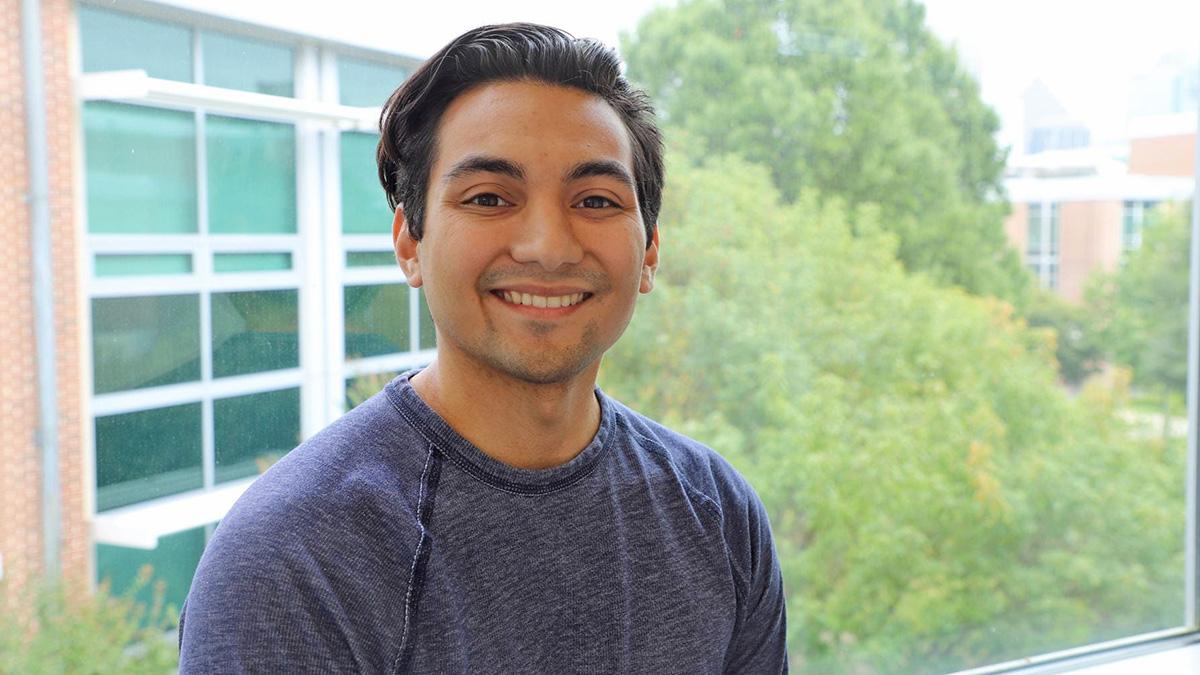Joseph Del Rosario wants to understand neural mechanisms underlying the altered behaviors in autism spectrum disorders and other neuropsychiatric conditions. And it’s personal.
“I got into this area of research because my brother has autism, and I wanted to understand the altered neural mechanisms that drive this disorder to better develop treatments for it,” said Del Rosario, a Ph. D. student in the Wallace H. Coulter Department of Biomedical Engineering at Georgia Tech and Emory University.
To do that, he trains mice in a visually guided behavioral task and records their neural activity. In genetically engineered mice, he can manipulate different types of neurons with light, a technique called optogenetics, which affects the animals’ behaviors. His recordings and manipulations can determine how different neurons and cortical brain areas contribute to visually guided behaviors.
Now the National Institutes of Health is taking notice. For his work in exploring the neural processes contributing to behavior, Del Rosario has been named an NIH Outstanding Scholar in Neuroscience. The program recognizes neuroscience trainees who have performed impactful research and shown great academic potential.
The honor includes an invitation to visit NIH headquarters in Bethesda, Maryland, where awardees will present their research and network with leaders who can help drive the work forward.
“This opportunity to visit the NIH and have discussions with leaders and colleagues will help me better shape my future career directions and give me a better chance to be successful in this field,” said Del Rosario, who works with Bilal Haider and grew up in Southern California. Del Rosario expects to graduate in the fall and continue working on autism and improving treatments.
“I think the lack of efficient treatments can be partially attributed to our lack of understanding of the neural mechanisms driving autism and other neuropsychiatric disorders,” he said.
And, he added, there’s still plenty of mystery surrounding the mechanisms driving normal behaviors. Del Rosario would like to develop a more comprehensive understanding of both these normal and altered processes.
“To me, this is one of the most exciting fields to be in,” he said. “I’m literally reading a mouse’s thoughts to research a neurological disorder with the hope it’ll one day lead to better treatments for people like my brother.”
Latest BME News
Jo honored for his impact on science and mentorship
The department rises to the top in biomedical engineering programs for undergraduate education.
Commercialization program in Coulter BME announces project teams who will receive support to get their research to market.
Courses in the Wallace H. Coulter Department of Biomedical Engineering are being reformatted to incorporate AI and machine learning so students are prepared for a data-driven biotech sector.
Influenced by her mother's journey in engineering, Sriya Surapaneni hopes to inspire other young women in the field.
Coulter BME Professor Earns Tenure, Eyes Future of Innovation in Health and Medicine
The grant will fund the development of cutting-edge technology that could detect colorectal cancer through a simple breath test
The surgical support device landed Coulter BME its 4th consecutive win for the College of Engineering competition.








